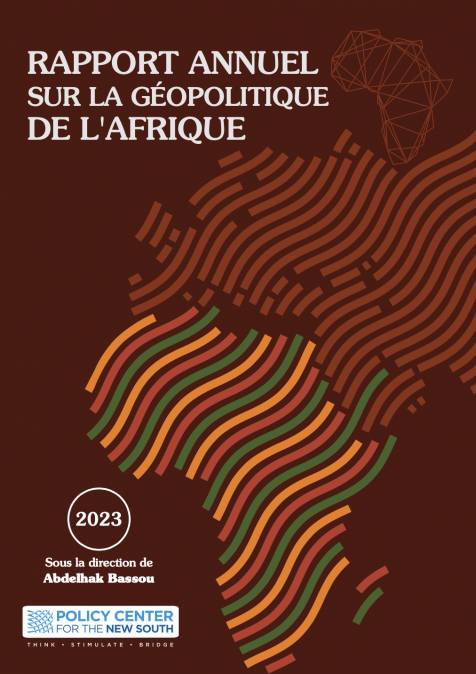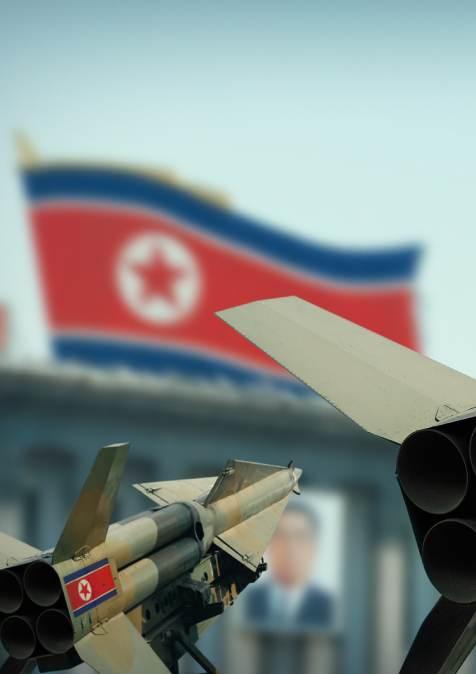Publications /
Opinion
The Nile is a monster, at 6,650 kilometers the longest river on the planet. Control of its waters has kept rulers in power for thousands of years. The Blue and White Niles merge in Khartoum then flow northwards, travelling through Sudan to Egypt, the glorious land of Pharaohs.
Conflict or cooperation
The Blue Nile nations, Ethiopia, Sudan and Egypt, are facing the question of conflict or cooperation, as Sara Hasnaa Mokkadem wrote in her study for the Annual Report on Africa’s Geopolitics 2020 for the Policy Center for the New South. In April 2011, the Ethiopian government started the construction of the Grand Ethiopian Renaissance Dam (GERD), also known as the Millennium Dam, on the Blue Nile near the border with Sudan. Mokkadem noted: “Since the laying of the first stone, the GERD has been source of tension between the three countries.” War was considered possible, a seemingly incredible conflict possibly unavoidable. She added: “All three countries are clear about the economic cost of a potential conflict. A direct confrontation would be devastating for the region and would have far reaching consequences”. Egypt and Sudan fear that the dam will slow or, eventually, stop their water supplies, dramatically damaging agriculture and industry, adding to the water shortages felt already in larger Egyptian towns. In other words: the water is a national security issue, and military action is possible.
Over nearly a decade, numerous meetings and negotiations to ease tensions have failed to secure agreement. Although the downstream countries (Egypt and Sudan) remain extremely concerned about the consequences for their water security, work seems to progress on the dam, which is now 80% complete. “With its reservoir of 74 billion cubic meters of water—equivalent to Egypt’s annual water needs—16 turbines, and its expected production capacity of 6448 megawatts of electricity, it will be the largest hydroelectric dam in Africa. The planned energy production, equivalent to six nuclear power plants, could make Ethiopia the continent’s largest electricity producer and a net energy exporter,” Mokaddem wrote. Construction of the GERD has raised fears that the flow of the Nile will drop, undermining its value as a vital resource, particularly for Egypt. With 95% of its population concentrated on the banks of the river, Egypt already faces “an alarming situation. In proportion to the increase in its population, and to the decrease in its agricultural land, Egypt’s water needs are continually increasing. Since Ethiopia began construction in 2011, Egypt and Sudan have pushed for a tripartite agreement on how to operate the dam before filling”.
For example, as Hasnaa Mokkadem stated in her paper, the opponents of the project, mainly Sudan and Egypt, want “negotiated rules on filling the dam during drought years, and want the slowest possible filling time, 12 to 21 years, to minimize the effects of the filling on the flow of the Nile. However, Ethiopia wants to fill the reservoirs much faster, between five and seven years. Another sticking point is how the dam will be managed during periods of drought and how much water Ethiopia is willing to release in order to safeguard the downstream countries’ interests”. Mistrust and tension remain high. Ethiopia is not willing to accept international arbitration, as suggested by Cairo and Khartoum, but insists, wrote Mokaddem, that the GERD issue is an African matter, and negotiations should be part of an African Union-led process. “The exchange between the Blue Nile countries became more heated when in July 2020 satellite images revealed that water was being stored in the GERD reservoir, notwithstanding the two other countries’ objections, which has been shared with the United Nations Secretary General. In fact, in May and June 2021, the Egyptian and the Sudanese Foreign Ministers wrote to the United Nations Security Council (UNSC) stressing the need to finalize an agreement on the Ethiopian dam and urging the international community to pressure Addis Ababa so it does not take any unilateral regarding the filling of the reservoir.” Obviously without success—on July 15, 2020, Ethiopia’s water minister announced that the filling of a reservoir behind the Grand Ethiopian Renaissance Dam has started. It is still unknown, where the source of this water flow is hiding. In the end it does not really matter as long nature is delivering rain and floods to feed the Nile, forever a mythical monster.
The opinions expressed in this article belong to the author.







